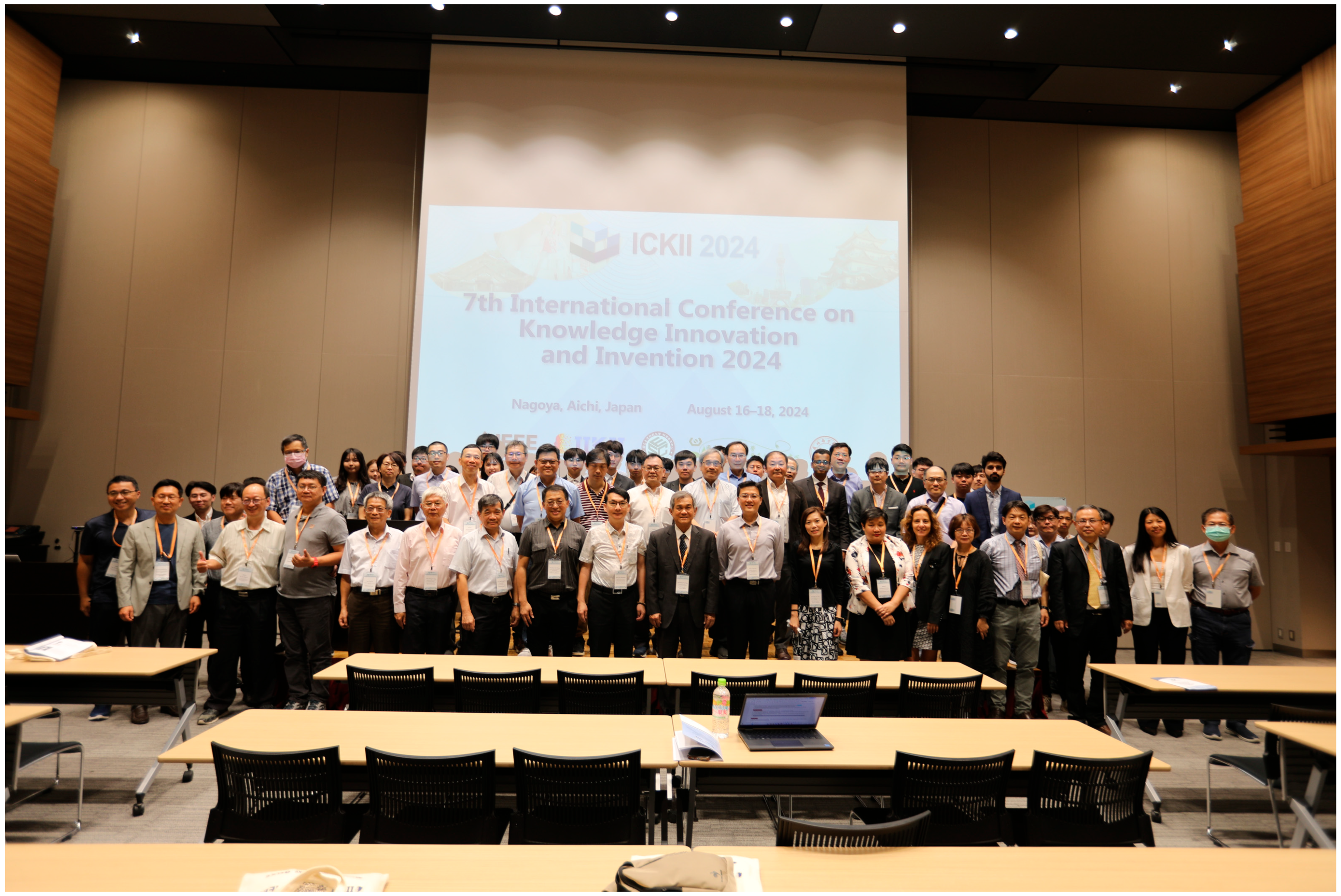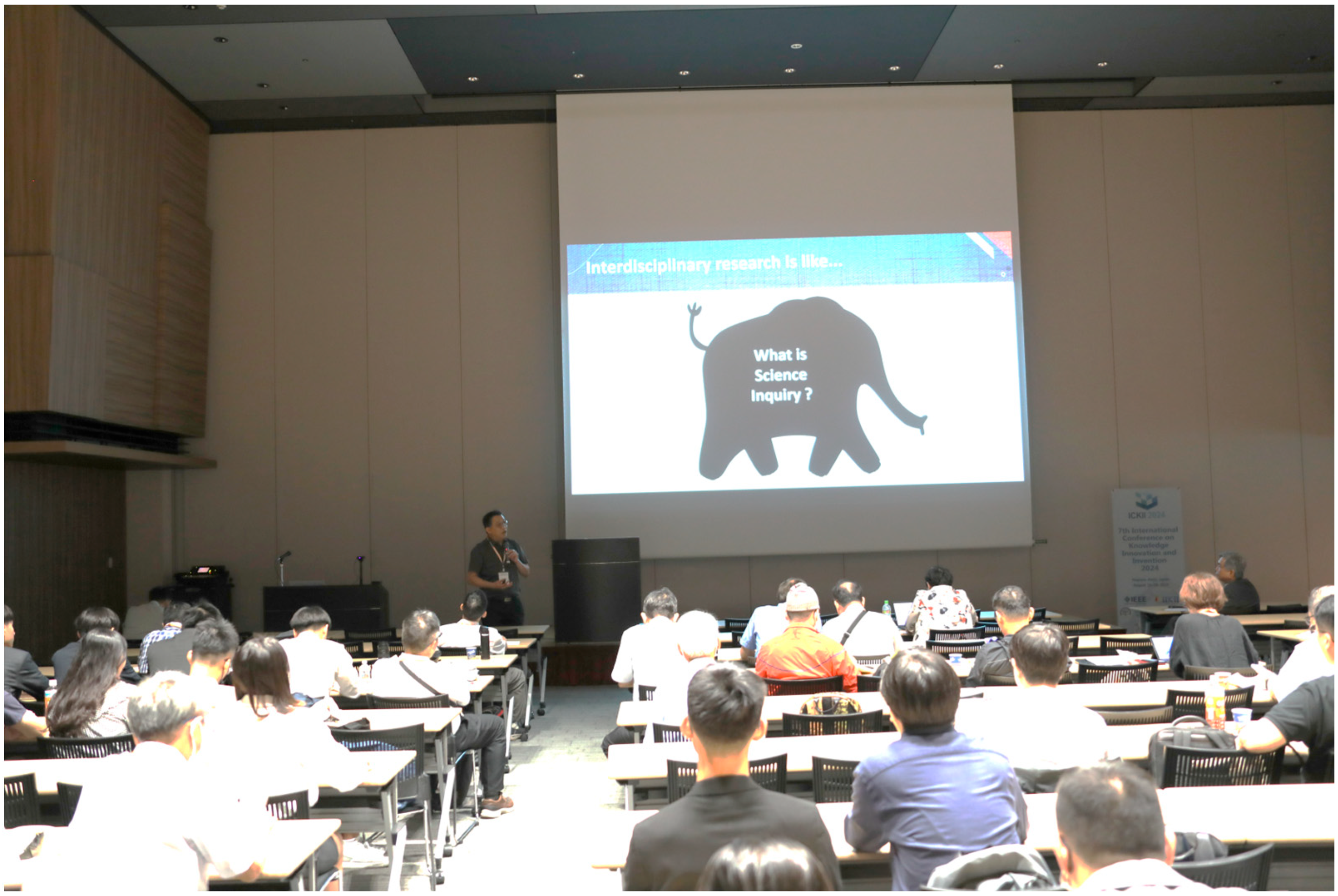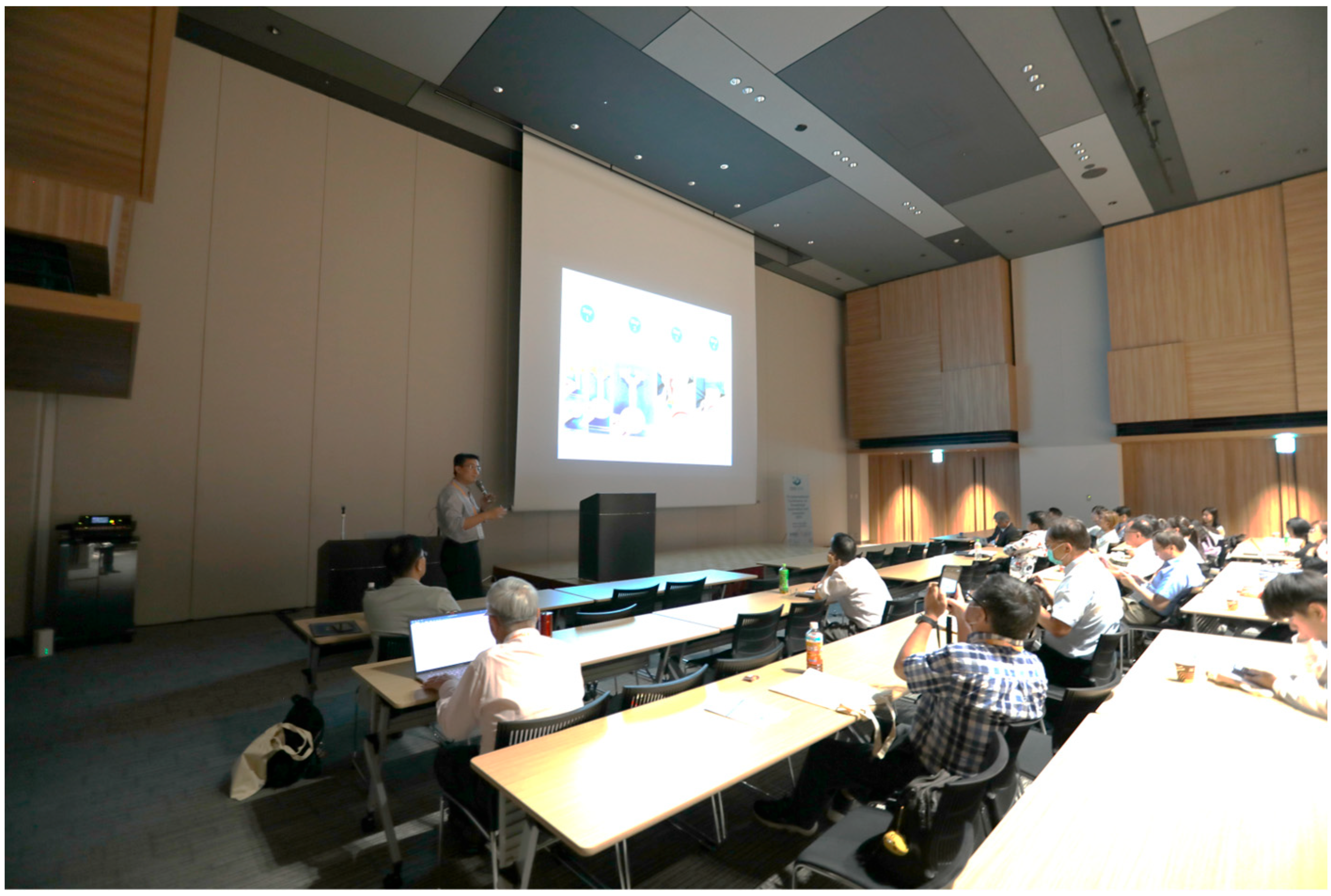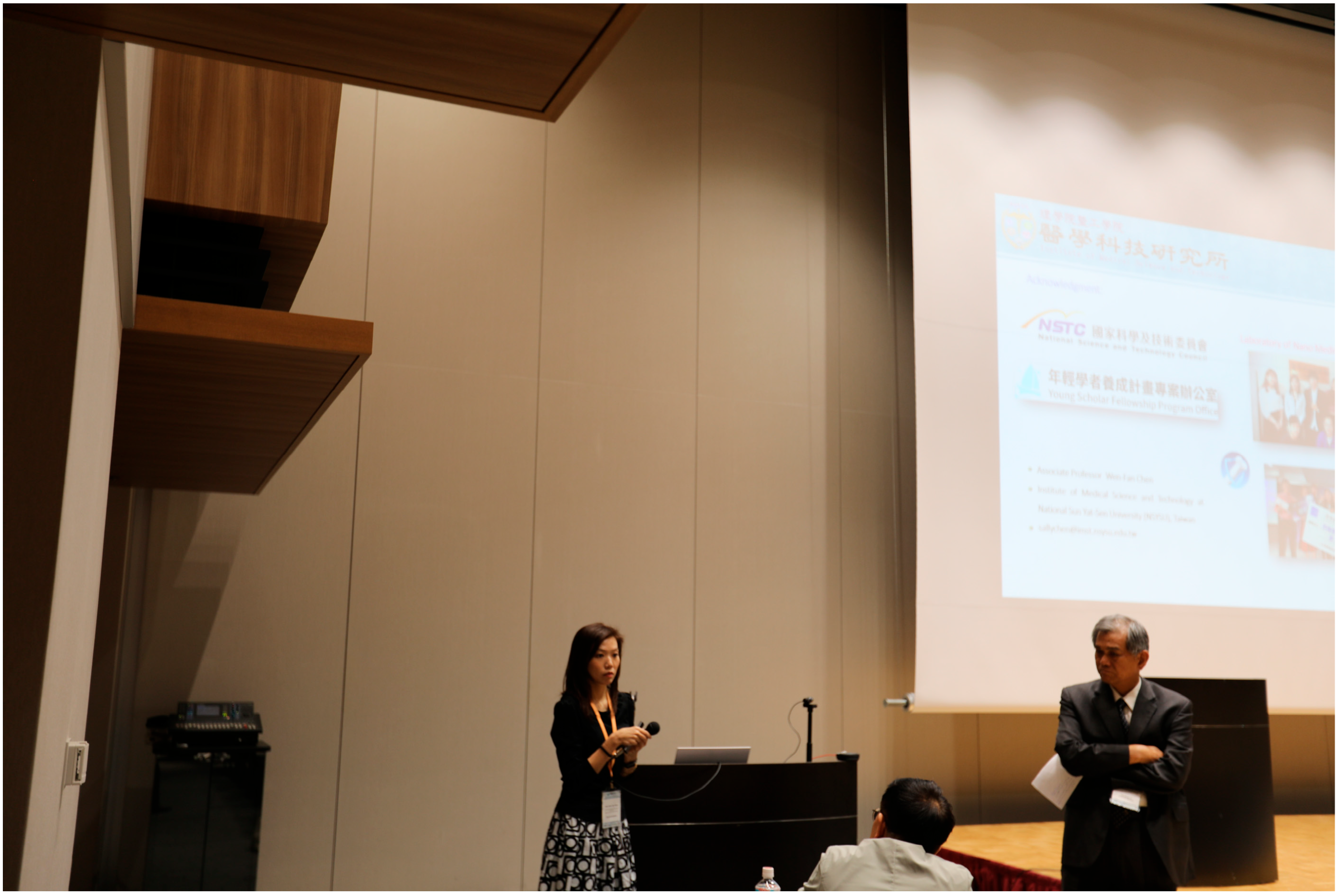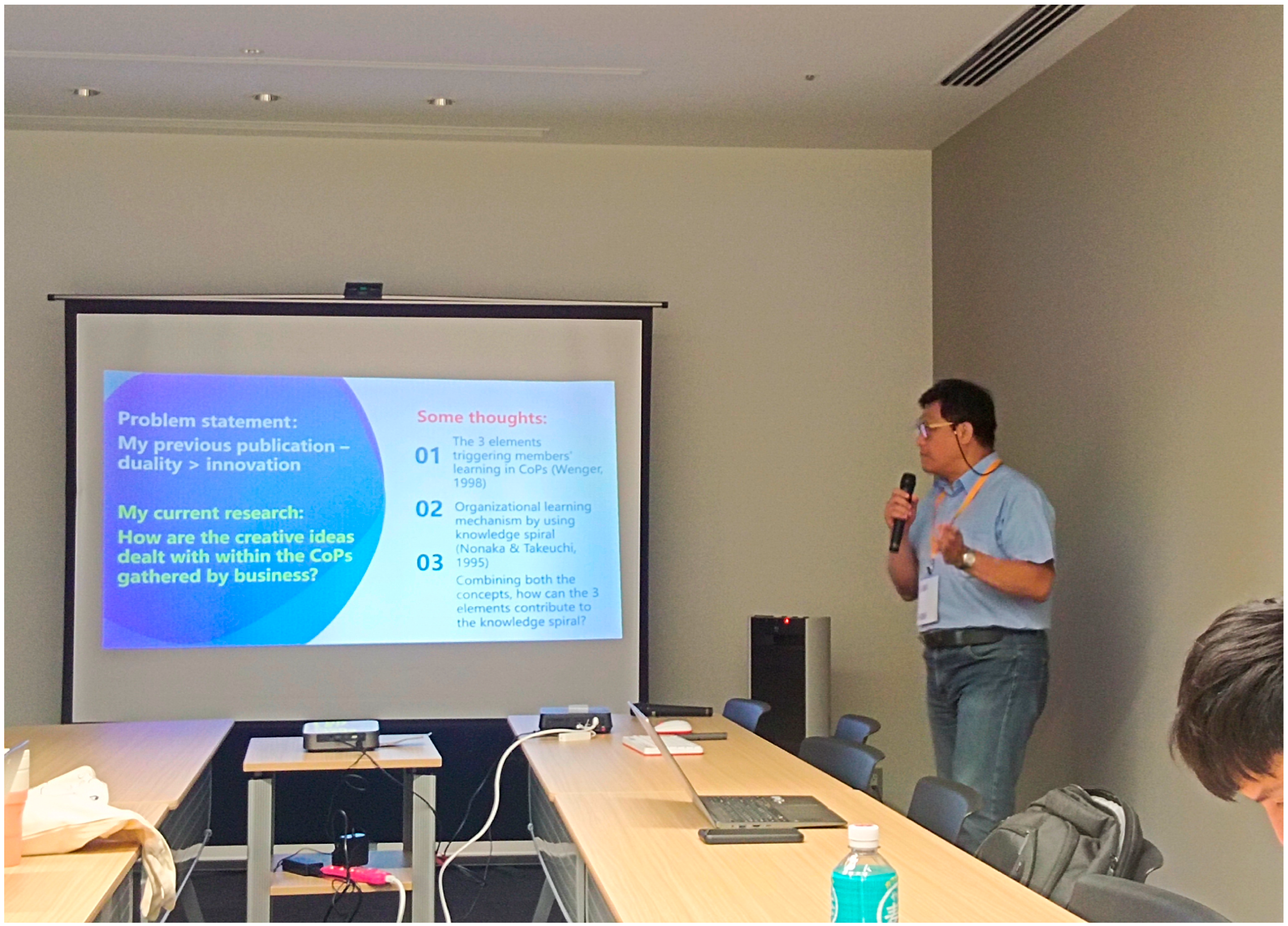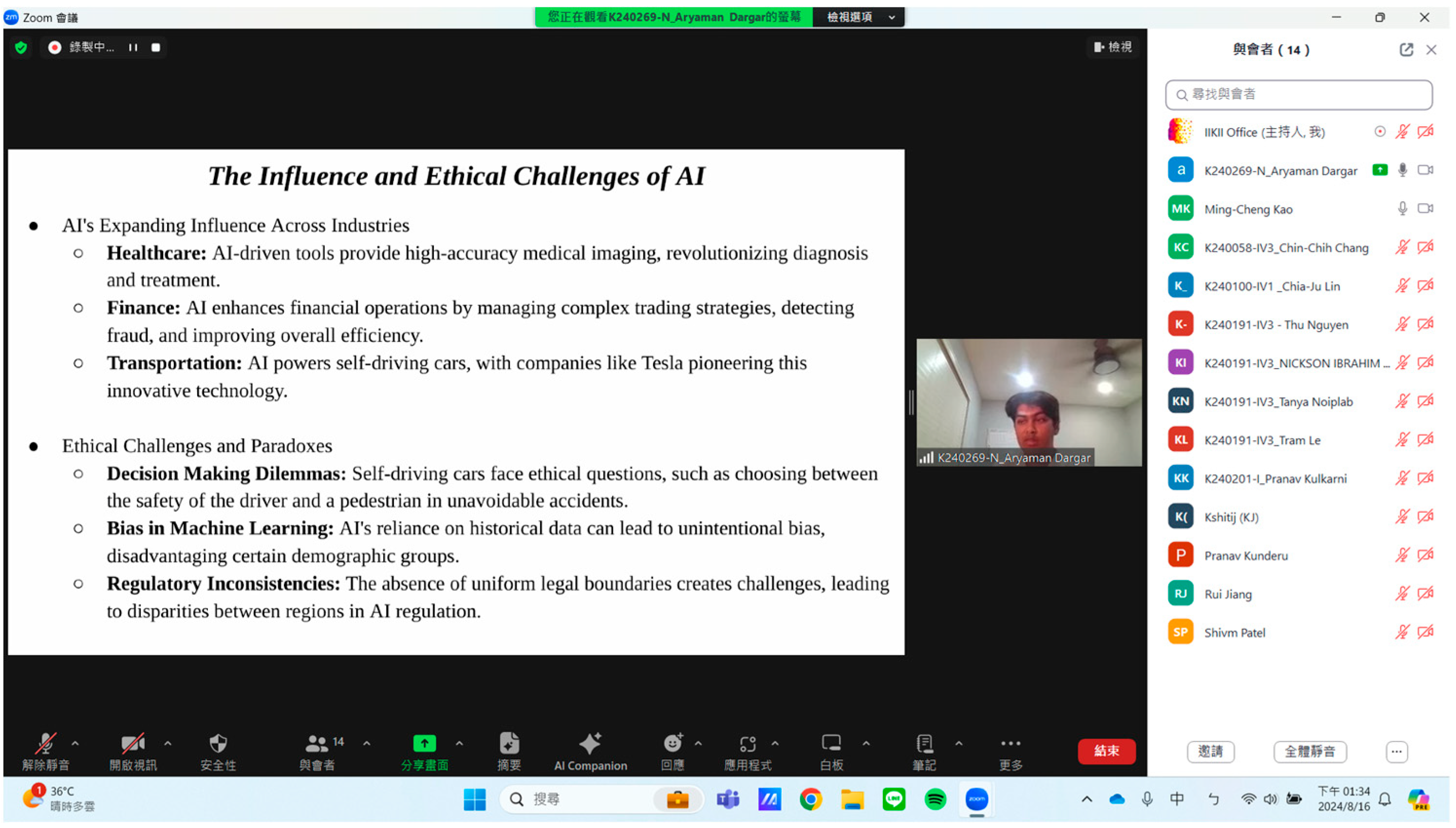This volume presents the proceedings of the 2024 IEEE 7th International Conference on Knowledge Innovation and Invention (IEEE ICKII 2024). This conference was jointly organized by the Science Education Center of National Taiwan Normal University; the Photovoltaic Research and Education Center for Smart Green Energy at National Formosa University; the International Institute of Knowledge Innovation and Invention (IIKII); and the IEEE Tainan Section Sensors Council (IEEE TSSC), in the field of sciences and engineering technologies. It aimed to provide a unified communication platform for researchers across a broad range of topics, including Information Technology, Innovation Design, Bioengineering, Communication Science and Engineering, Industrial Design, Creative Design, Applied Mathematics, Computer Science, Electrical and Electronic Engineering, Mechanical and Automation Engineering, Green Technology and Architecture Engineering, Materials Science, and other related fields. This conference facilitated interdisciplinary and international collaboration among leading technologists in both academia and industry. Ample time was provided for presentations and discussions, and attendants participated in various activities, bringing together a diverse group of engineers and technologists from multiple disciplines to foster new ideas, collaborations, and business opportunities.
ICKII 2024 was held in a hybrid format, offering both on-site and online presentations. Figure 1 shows a group photo taken during the opening ceremony of the conference. Figure 2 captures the first keynote speech, entitled “The Future of Scientific Inquiry: Cutting-Edge Assessments Merging AI and Genomics”, delivered by the Chair, Professor Chun-Yen Chang from National Taiwan Normal University, Taiwan. This talk introduced the groundbreaking approaches to transforming scientific inquiry assessments. Professor Chang and his research team have embarked on an ambitious interdisciplinary journey, blending science education, genomics, and neuroscience to create a new generation of AI-assisted online scientific inquiry tests. Their goal is to link assessment results with genomic and neurophysiological characteristics, paving the way for truly integrative research. Some of their most notable achievements over the past two years are as follows: 1. Development of Interactive Test Questions; 2. Innovative Assessment Methods; 3. Latent Profile Analysis; 4. Biological Information Analysis; 5. Learning Environment Planning; 6. Epigenetic Memory Model. This research has led to the creation of innovative assessment tools and has enabled deeper exploration of the biological factors influencing learning and memory. Ultimately, it contributes to the development of more effective educational strategies by leveraging tools such as generative AI to shape the future of scientific inquiry and bridge the gap between science education, genomics, and neuroscience.
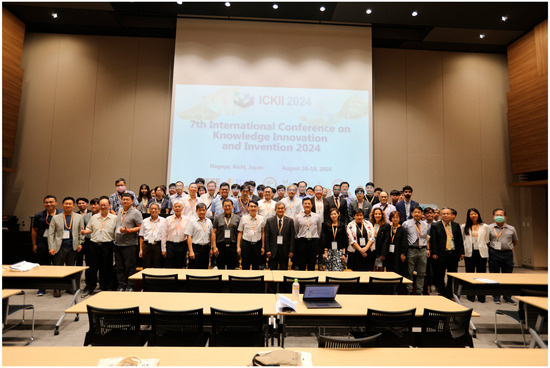
Figure 1.
Group photo at opening ceremony of ICKII 2024.
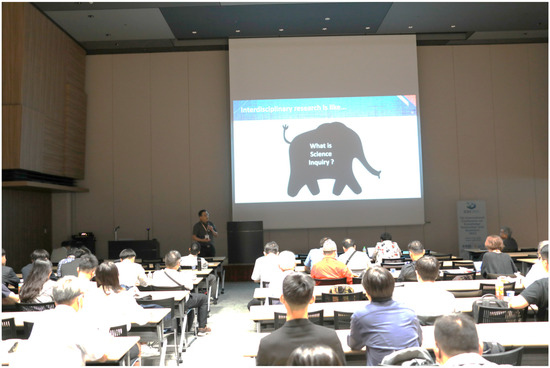
Figure 2.
Photo of first keynote speech at ICKII 2024.
Figure 3 shows the second keynote speech, entitled “AI-Enhanced Wearable Assistant Device for Biomedical Application”, presented by Professor Yi-Chun Du from the Department of Biomedical Engineering, National Cheng Kung University, Taiwan. He discussed four projects on AI-enhanced wearable assistant devices in the biomedical field, specifically designed for hemodialysis patients, pregnant women, individuals with dysarthria, and those requiring hearing loss care. Finally, a project involving integrated mixed reality (MR) wearable technology for surgical assistance was explored. Looking ahead, there is strong anticipation for the continued development of AI-enhanced wearable devices. The commercialization of these technologies has the potential to reduce clinical workloads and improve the quality of care in both healthcare and caregiving industries.
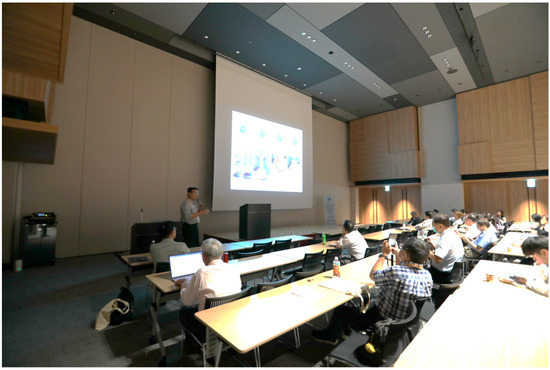
Figure 3.
Photo of second keynote speech at ICKII 2024.
Figure 4 displays the third keynote speech, entitled “Synthesis and Development of Bionic Ceramic Scaffolds by 3D Printing Technology”, delivered by Associate Professor Wen-Fan Chen from the Institute of Medical Science and Technology, National Sun Yat-Sen University, Taiwan. Each year, millions of patients worldwide undergo bone grafting procedures to treat bone defects. While fractures in young people are often caused by excessive exercise or car accidents, osteoporosis is more common among the elderly. As a result, orthopedic-related products continue to account for a high proportion of the medical device market. Although autografts are currently considered to be the gold standard for grafting, its application is limited by the finite amount of donor bone available and the need for multiple surgeries. Allografts, on the other hand, require various considerations such as the risk of disease transmission and reduced biological activity following sterilization. Therefore, the development of synthetic bone materials has become a promising area of research that requires urgent innovation. In line with this need, Professor Chen shared the main research directions of her team, which included the following: (1) Synthesis of novel ceramic materials with good compatibility with natural bone; (2) integration of 3D printing technology developed by her team to produce bionic scaffolds; and (3) development of magnetic nanoparticles capable of using an inductive heating effect to eliminate diseased cells near the implanted bone area. By combining these innovations, the team aims to create a customizable, degradable bionic scaffold with high strength, high bioactivity, and magneto-thermal properties.
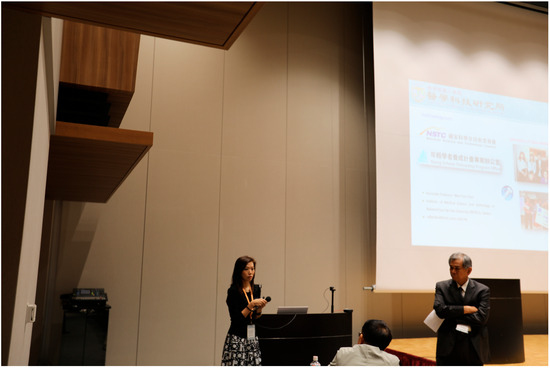
Figure 4.
Photo of third keynote speech at ICKII 2024.
ICKII 2024 provided 15 Regular Sessions and 4 Invited Sessions, showcasing 223 papers. These covered topics such as Information Technology, Innovation Design, Bioengineering, Communication Science and Engineering, Industrial Design, Creative Design, Applied Mathematics, Computer Science, Electrical and Electronic Engineering, Mechanical and Automation Engineering, Green Technology and Architecture Engineering, Materials Science, and other related fields. Figure 5 and Figure 6 show the on-site and online oral presentation sessions.
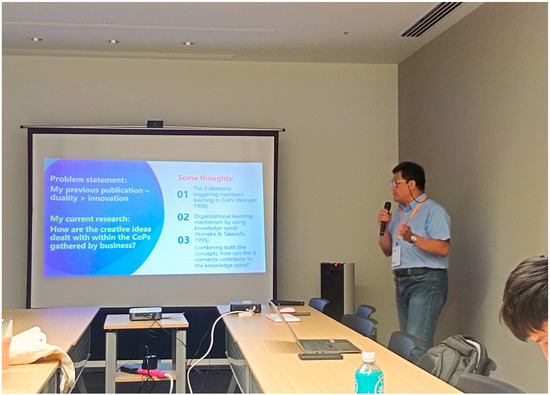
Figure 5.
Presentation at an on-site session of ICKII 2024.
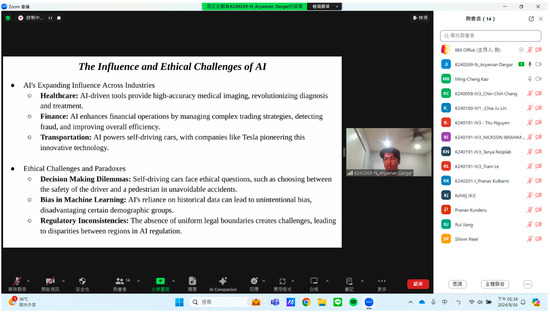
Figure 6.
Presentation at an online session of ICKII 2024.
Many significant results were shared at ICKII 2024 by enthusiastic participants. Through a rigorous peer-review process, 55 excellent papers related to engineering fields relevant to the conference were selected for publication in Engineering Proceedings (ISSN: 2673-4591, indexed by Scopus). The proceedings of ICKII 2024 are expected to foster interdisciplinary collaboration among science and engineering technologists across academia and industry, while also promoting international networking.
Conflicts of Interest
The authors declare no conflicts of interest.
Disclaimer/Publisher’s Note: The statements, opinions and data contained in all publications are solely those of the individual author(s) and contributor(s) and not of MDPI and/or the editor(s). MDPI and/or the editor(s) disclaim responsibility for any injury to people or property resulting from any ideas, methods, instructions or products referred to in the content. |
© 2025 by the authors. Licensee MDPI, Basel, Switzerland. This article is an open access article distributed under the terms and conditions of the Creative Commons Attribution (CC BY) license (https://creativecommons.org/licenses/by/4.0/).

